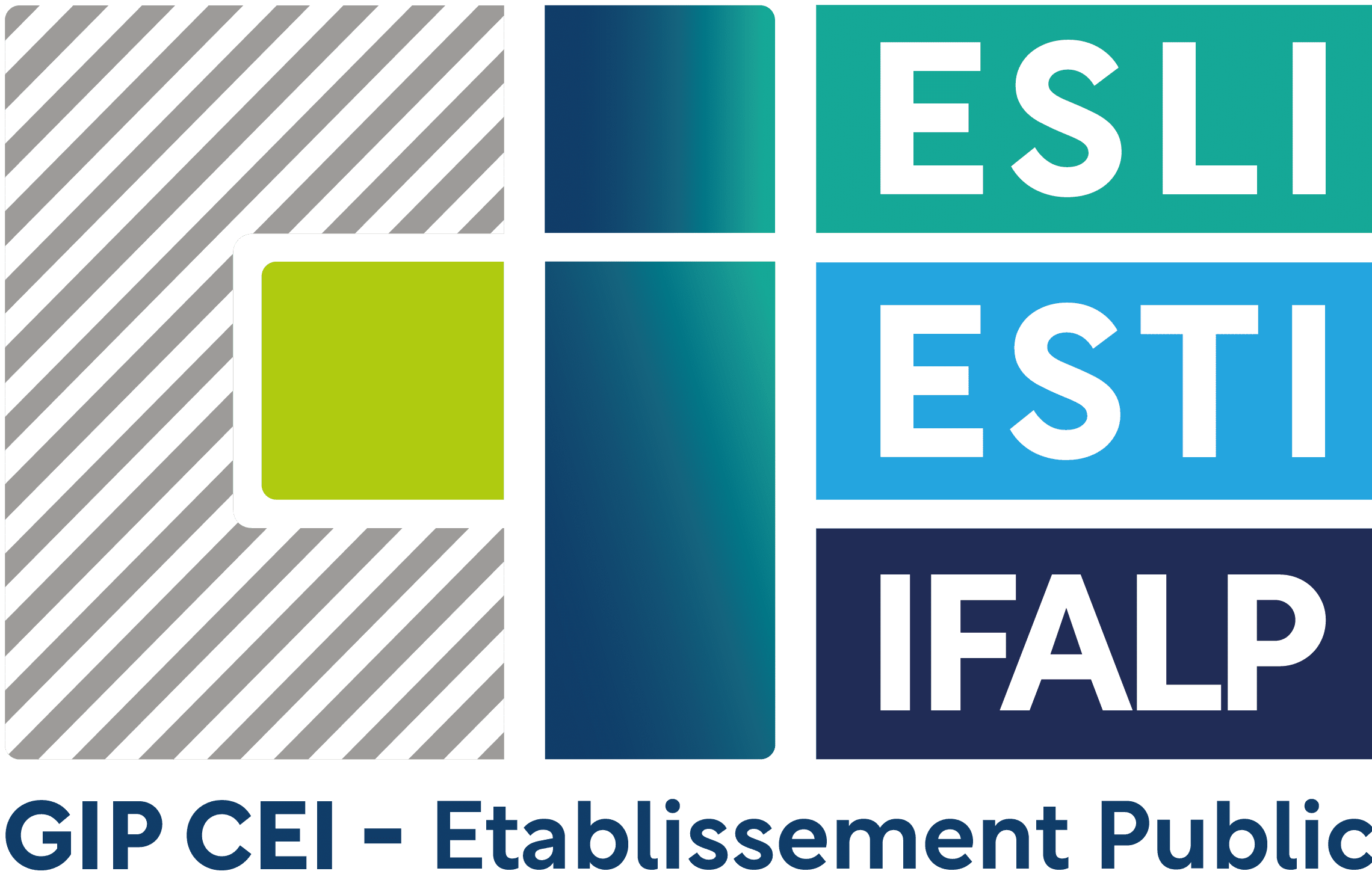Licence pro Logistique et Pilotage des Flux

Parcours : conception et amélioration des processus logistiques
Formation en alternance GRATUITE et RÉMUNÉRÉE
RNCP : 40064
Établissement partenaire

Débouchés
Perspective d’emplois
Quelques exemples d’intitulés de postes :
- Assistant Responsable Logistique : optimise les flux physiques et d'informations entre les fournisseurs, les entrepôts et les clients finaux.
- Chef de projet Lean : pilote des projets d'amélioration continue, coordonne les équipes, analyse les flux et met en place des actions correctives pour atteindre des gains de productivité.
- Acheteur junior : sélectionne les fournisseurs, négocie des contrats, optimise les coûts tout en garantissant la qualité des produits et services.
- Gestionnaire des approvisionnements/des stocks : s’assure que les produits nécessaires sont disponibles en quantités suffisantes et au bon moment pour éviter les ruptures de stock.
Poursuite d’études
L’objectif de la licence professionnelle est l’insertion professionnelle.
Une poursuite d’études est envisageable dans les domaines de la logistique, de l’excellence opérationnelle, de l’amélioration continue ou des achats , en fonction du dossier et du projet professionnel de l’étudiant.
Passerelles
- Décret VAE – Code de l’éducation : article L 613-3modifié par la loi n° 2015-366 du 31 mars 2015
- Décret n° 2017-1135 du 4 juillet 2017 relatif à la mise en œuvre de la validation des acquis de l’expérience
Source : Fiche Nationale RNCP

En quelques chiffres
2024
2024
2024
2023
2023
2023
97%
de réussite
2023
2023
86%
de satisfaction
70%
d’embauches en CDI
*Sur 17 candidats présentés
Le CFA GIP Campus ESPRIT Industries accompagne ce secteur à fort potentiel d’emplois : 500 000 postes à pourvoir à l’horizon 2025 en développant et en proposant des formations qui accompagnent les entreprises dans la transition vers une logistique plus verte de plus en plus digitalisée en leur permettant d’acquérir de nouvelles connaissances/compétences dans le domaine de la logistique/Lean/amélioration continue.
Source des données : https://www.ecologie.gouv.fr/france-logistique-2025
Objectifs
de la formation
Cette licence professionnelle a pour objectif de former des professionnels polyvalents, capables de conduire des projets d’amélioration continue, d’optimiser des flux/stocks et d’améliorer le service aux clients internes ou externes avec des coûts minimum.
Le responsable de la conception et de l’amélioration des processus logistiques est amené à coordonner son action avec l’ensemble des autres fonctions de l’entreprise et tous les acteurs du réseau de l’entreprise.
Logistique
Conduire des projets d’amélioration continue
Transport
Optimiser des flux/stocks
Relation client
Améliorer le service aux clients internes ou externes avec des coûts minimum
Travail d'équipe
Coordonner son action avec l’ensemble des autres fonctions de l’entreprise
Logistique
Conduire des projets d’amélioration continue
Transport
Optimiser des flux/stocks
Relation client
Améliorer le service aux clients internes ou externes avec des coûts minimum
Travail d'équipe
Coordonner son action avec l’ensemble des autres fonctions de l’entreprise

Compétences développées
Programmes de
la formation
UE1 – Supply chain management
- Introduction Supply Chain Management
- Gestion des Stocks et Approvisionnements
- Méthodes et outils de l’excellence opérationnelle
- Fondamentaux des Achats et gestion des relations fournisseurs
- Douanes et gestion des transports au niveau national et international
(Programme sous réserve d’ajustements)
UE2 – Lean Management et outils d’amélioration continue
- Introduction à la Gestion de Production
- Entreposage, Transitique et Conception de Chaîne de Production
- Principes et outils de l’amélioration continue
- Audit Logistique
- Lean Manufacturing et système de production avancée
- Gestion des entrepôts et Réseaux de distribution
- La gestion Lean des réseaux de distribution
- Ergonomie et sécurité en milieu industriel
(Programme sous réserve d’ajustements)
UE3 – Management d’entreprise
- Système d’Information – Excel Avancé
- Communication et gestion de projet
- Gestion de l’Entreprise dans son Environnement
- Comptabilité Générale et Analytique
- Anglais professionnel et technique
(Programme sous réserve d’ajustements)
UE4 – Projet tuteuré
UE5 – Périodes en entreprise
Télécharger la brochure
Témoignages
Alumnis

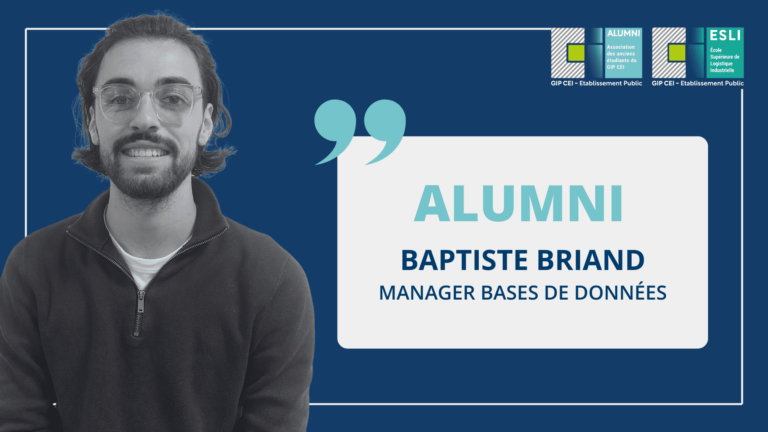


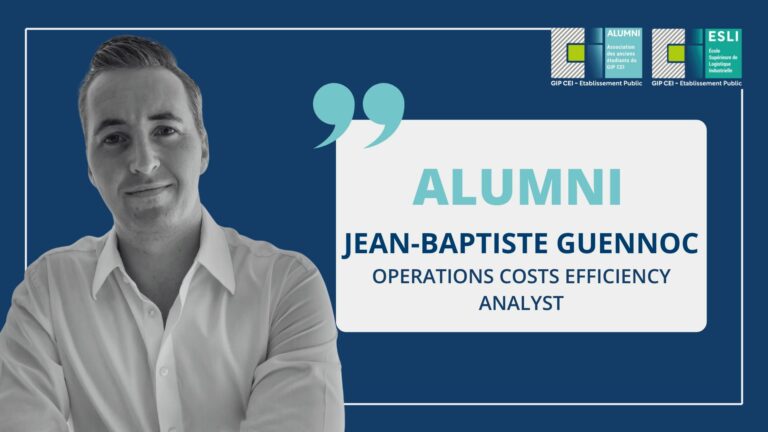
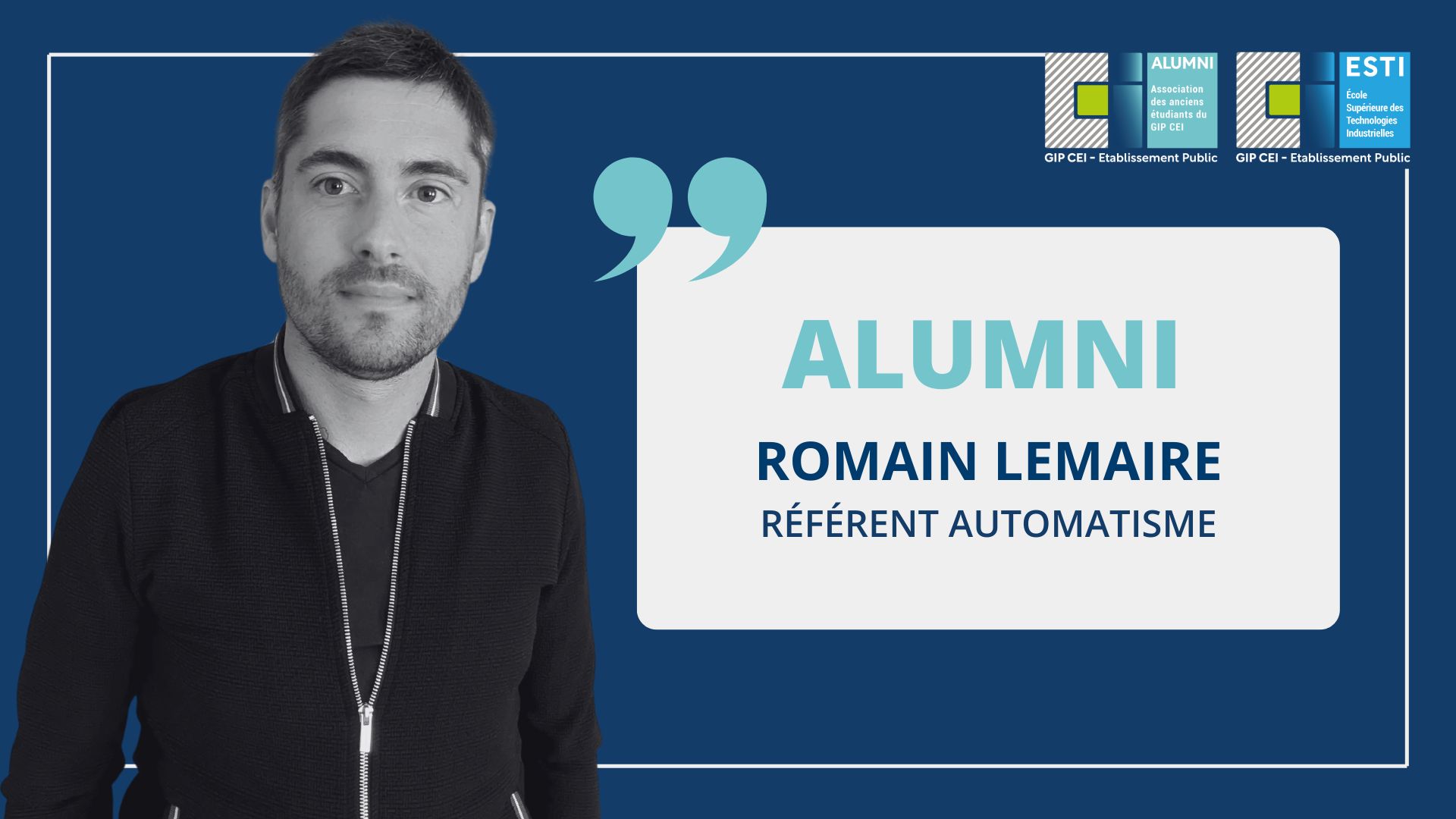


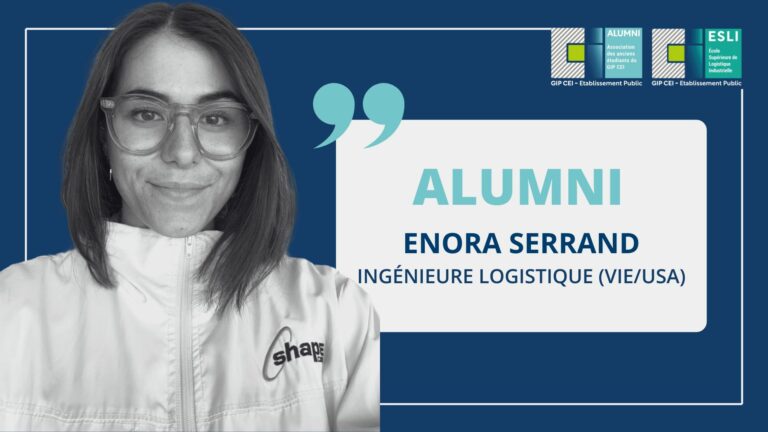
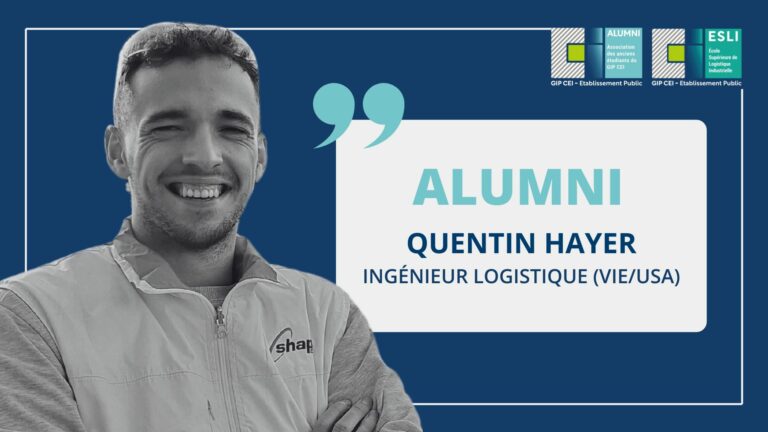
En savoir plus
Conditions d'admission
Prérequis
En formation initiale, la formation est accessible aux titulaires d’un Bac +2 dans le domaine de la logistique, du
transport ainsi qu’à d’autres diplômes de niveau équivalent à dominante technologique, gestion, ou commerce.
La sélection se fait sur :
• dossier ;
• et entretien (éventuellement en visio-conférence).
En formation continue : aux salariés et aux demandeurs d’emplois ayant des acquis dans le domaine industriel.
La Validation des Acquis de l’Expérience (VAE) est possible avec 3 années d’expérience au minimum, ainsi que la Validation des Acquis Professionnels (VAP).
Durée
570 h sur 12 mois
La formation se déroule en alternance :
Rythme d’alternance :
– 5 à 8 semaines en entreprise
– 3 à 4 semaines au centre de formation
Organisation pédagogique
Le programme est proposé en formation continue ou en alternance.
La formation est assurée par des enseignants, enseignants-chercheurs, des experts et des praticiens de haut niveau.
Le responsable de programme est Mohamed HAOUARI, Directeur Adjoint du GIP CEI.
- Possibilité de valider un ou plusieurs blocs de compétences : Non
- Possibilité de validation par capitalisation des blocs de compétences composant la certification : Non
- Equivalences, liens avec d’autres certifications professionnelles, certifications ou habilitations : Aucune correspondance
Dates importantes
Dates des portes ouvertes : 14 décembre 2024, 8 février 2025, 15 mars 2025 à Redon
Ouverture des candidatures : janvier 2025
Date des jurys et entretiens : à partir de janvier 2025
Rentrée : octobre 2025
Modalités d'évaluation
Les enseignements pratiques, en lien étroit avec les entreprises, sont assurés par des intervenants sélectionnés pour leur expertise.
Les modules sont évalués par contrôle continu + Rédaction et soutenance d’un mémoire sur le projet d’alternance en entreprise + Rédaction et soutenance d’un mémoire de projet tutoré.
Méthodes et moyens mobilisés
Salle mise à disposition, diaporamas, supports de cours, livret de l’étudiant, salle informatique en libre accès.
Face à face, exposés des notions essentielles, cas pratiques, jeux pédagogique, visites d’entreprises, témoignages, la formation favorise le travail en groupe.
Un suivi individualisé des étudiants en double tutorat : tuteur pédagogique (au centre de formation) et un tuteur industriel (en entreprise).
2 visites de suivi du tuteur pédagogique dans l’entreprise d’accueil.
Financement de la formation
Frais de la formation : Formation en alternance GRATUITE et RÉMUNÉRÉE :
- L’alternant signe un contrat de travail, lequel doit prévoir une rémunération.Les frais de formation sont pris en charge par l’OPCO de l’entreprise d’accueil
- frais de formation sont pris en charge par l’OPCO de l’entreprise d’accueil
Formation continue
Nous vous remercions de prendre contact avec Sylvia DÉSIGNÉ
Ligne directe : +33(0) 2 99 71 60 23
sdesigne@gip-cei.com
Handicap
Formation accessible aux personnes en situation de handicap
Contacter le Pôle handicap du Campus :
handicap@gip-cei.com
Les entreprises qui
accueillent les
étudiants du campus
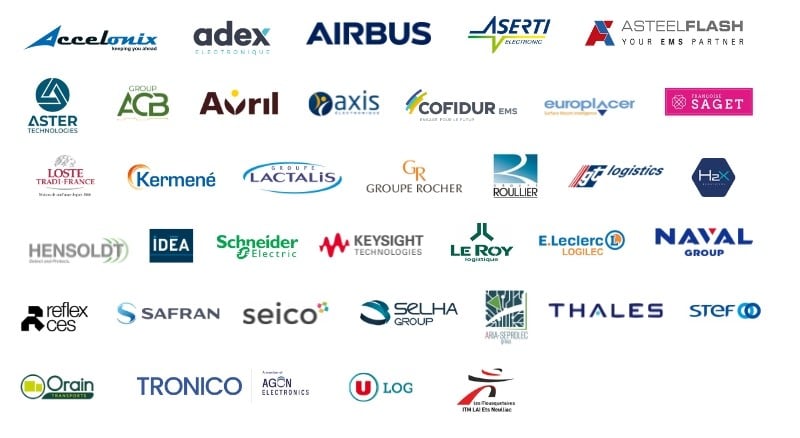
Lieu de la formation
- 26 quai Surcouf – 35600 REDON
- +33(0)2 99 71 60 20
26 quai Surcouf – 35600 REDON
+33(0)2 99 71 60 20
